Members of Parliament should be allowed to choose between whether they would like to work in their role on a full-time or a part-time basis, Parliament Speaker Anglu Farrugia told The Malta Independent in a wide-reaching interview.
The idea for MPs to be allowed to work on a full-time basis has come to the fore as of late, with former PN MP David Stellini, Prime Minister Joseph Muscat, and Standards Commissioner George Hyzler all suggesting a reform in this regard.
Asked for his thoughts about such a reform, Farrugia said that it was needed, but disagreed with what Prime Minister Muscat had said, noting that he had seemed to imply that all MPs should be engaged in Parliament on a full-time basis by force.
“When you do that it’s like you’re telling every professional not to come out for politics – in that case, who will you have in Parliament? We’re talking about laws here, so if, for example, those who are in the legal profession see that it isn’t worth being in Parliament because they have to be full-time, you are killing the initiative”, Farrugia said.
He said that he favoured a system where MPs are given the choice whether they would like to work on a full-time or part-time basis, as is the case in countries such as Portugal.
In the interview, Farrugia also speaks about the government’s recently unveiled measures for gender representation in Parliament, the situation on the Parliament building, the preparations for the budget, and more family-friendly measures being introduced in Parliament.
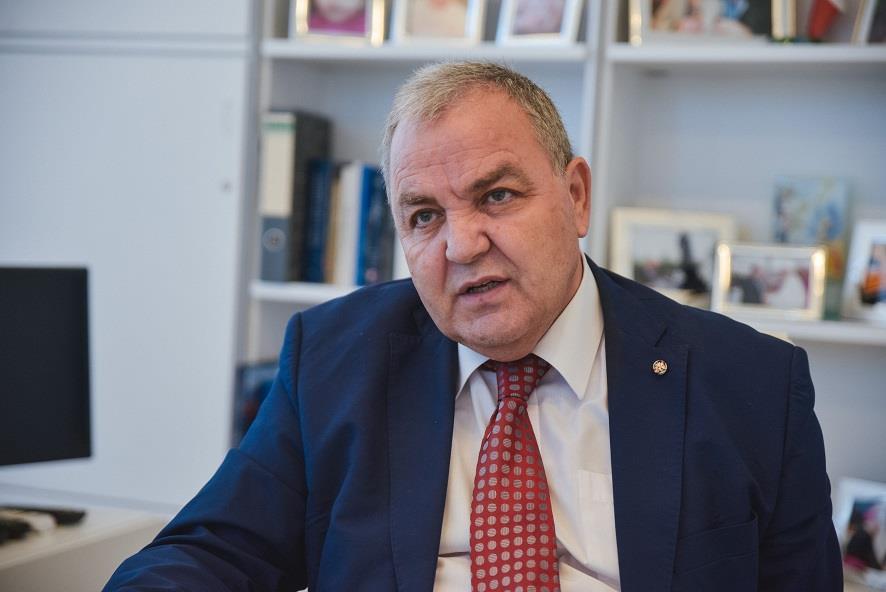
What are you expecting to face this year?
In terms of procedure, it is always the same; discussion, agenda, and I will give direction through a ruling if something happens – in fact in the first sitting I am going to be giving a ruling on what happened in summer in the Environmental Committee, which is an interesting one about the powers that come out of the functions of that committee. Aside from that though, the agenda is set by the government. At the moment, there are seven laws on the table which were shelved from when we went into recess. Whichever one comes onto the agenda, all we will have is three days because as soon as we start on 7 October, the budget will follow the week after and that’s another two weeks of discussion. We will have the House Business Committee to discuss what is happening in the next weeks; but I’m not foreseeing anything really out of the ordinary.
You mentioned the budget – of course that’s one of the big occasions of the parliamentary calendar; what are your preparations as Speaker when it comes to this occasion?
As Speaker, I present my own Budget – but that is not part of the government’s budget, as we are completely autonomous. I present my financial plan and there is just a motion for it to be carried forward. We don’t involve ourselves with the Ministers as such but when there is the budget, there is the procedure that from the Minister of Finance it goes to the President, and then the program of debate is settled with Parliament.
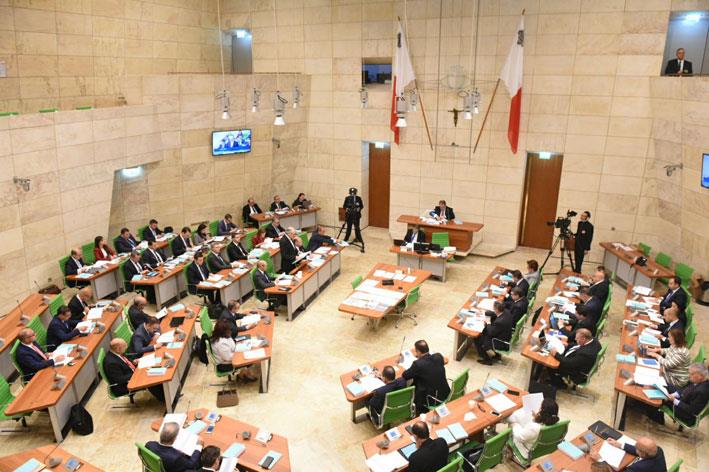
There are sometimes certain discussions in Parliament which can get a bit heated; what issues do you face, even when dealing with moments such as these?
I have the privilege that – and I have discussed the role of the Speaker in the Commonwealth where I am chair of all the small nations – I am the only Speaker in the Commonwealth to be elected twice into the executive of the Speaker’s Conference. One of the reasons is that I am one of the few Speakers in the Commonwealth not attached with any political party. When I resigned, I resigned from a political party as well and when I took office as Speaker, I was not even a member of a political party – something which no Speaker did before me. That gives me a lot of moral authority. When something happens in Parliament, I take it in hand immediately and I see whether a procedure is in breach of the standing orders and House of Commons procedure – as we are tied that in the absence of a standing order, we have to seek the procedure used in the House of Commons. I am the Speaker who has given the most rulings.Since I started, I’ve given as many rulings as the last five Speakers across 25 years – over 140, which are all published in nine volumes for transparency, research, and for use by other parliaments. Some even became procedures for other parliaments. On the whole though, I have good relations with both sides of the House, and I have no problem with any MP.
Last year we saw a family-friendly measure wherein Parliament started earlier and obviously finished earlier; are there going to be more family friendly measures for parliament?
Yes, in fact the government has, as you know, published a white paper which calls for more female members in parliament and there are discussions underway between the government and opposition for possible constitutional amendments in this regard.There is also a document which looks to the Speaker to head a commission to implement measures such as these.
We have already started – for example we have facilities, such as nappy changing rooms, for those parliamentarians who come with babies or young children. A place for a child care centre has also been identified, while a€4million project at the minus-two level in Parliament is underway so that MPs have more space. So, yes, we are working in this regard.
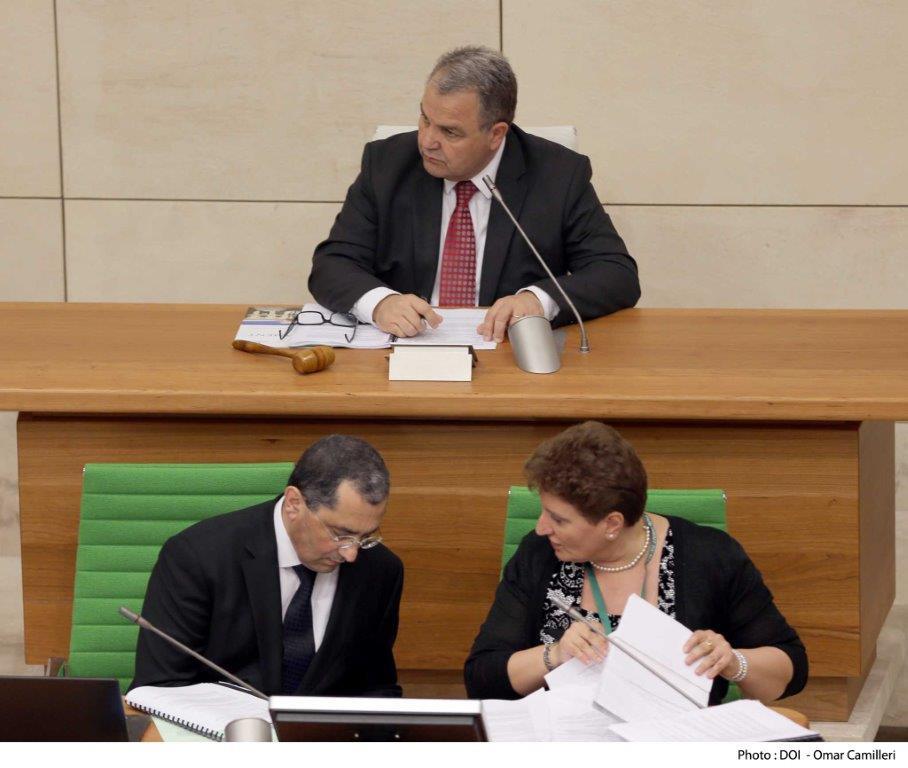
You mentioned these measures, ‘positive measures’ as the government is describing them, which aim to address the gender gap in parliament – what do you think of them?
I think the matter has to be addressed. Something is happening in our society; the right for women to vote and be voted for was given in 1947, but from then on we have remained with one of the lowest percentages of female representation in Europe. Something has to be done; we can’t leave the situation like that. I think that what is being proposed makes sense in that we need to push forward and address the issue, and then see whether the adopted procedure strengthens representation. It doesn’t make sense that a country like Cameroon for instance, which has big problems, has 40% representation of women and we have less; so something has to be done.
Do you think that the corrective mechanism that is being proposed is the measure that is needed?
I think that if not as it is, there has to be a corrective mechanism that is applied by the parties. If not a constitutional measure, this should come from them.
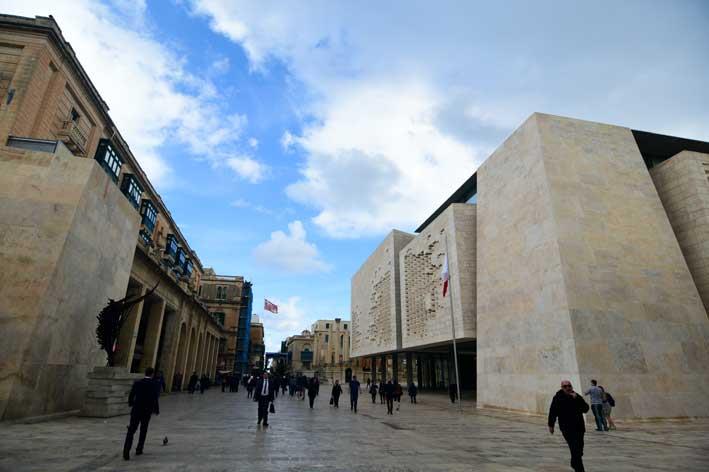
In the sense that, for example, they have 50 male candidates and 50 female candidates?
In the sense of their party list. If they don’t start, the public view will remain as is, and its not fair that we are not utilizing the best of female participation. We have hit good levels in the judiciary and management but in Parliament we are still backwards. In the highest institution of the country, this has to be addressed.
Are you satisfied with the attendance of MPs to Parliament throughout the last year?
I am satisfied because there was a big improvement since the imposition of penalties. You can ask if we needed them in the first place, but we implemented them. However, I’m also satisfied with the level of participation, not just their presence. There was more participation. Today, even with the introduction of television. we are in a period where parliamentarians and ministers are studying, carrying out research, and giving mature speeches. Of course, there is the discipline on time – where a speech is a maximum of 30 minutes – and that is helping to make them be more concise.
Do you think that the time allocated to speeches – where, for example, in the European Parliament the time allocated to MEPs to speak is much less than half an hour – should be reduced?
Yes, in fact I would have liked to have a maximum of 20 minutes – but they did not agree. We arranged and went for a 30-minute limit instead, but I think we need to revisit that. I do speak to colleagues from Europe and the Commonwealth, and I always find that the time allocated by the Speaker to each MP is among the highest, which, I feel, should be addressed.

Malta has the most MPs per capita in Europe – do you think that we may have too many MPs for the country that we are?
It’s not a question of saying how much we have per capita, as you need to see what’s going on in other countries. Even though we have the same population as, for instance, Cyprus and Luxembourg and have roughly the same number of MPs, the way in which parliamentary democracy, the activity we have in the country, and the involvement of the MPs, I think we are in a good place. It’s good to note that we have 13 parliamentary committees so aside from being involved in the plenary sittings, they will certainly be part of one of those.
The problem we have is on the fact that these MPs are all-part timers, aside from myself – as even though I kept the part-time salary, I decided to work full-time and I think that was the right decision. Today the time has come for the Government and Opposition to decide on reforms on what an MP is and what their profession is. Should it be left at a level where they have to get to it after their own profession, or should one give an MP, once elected, a choice on whether to remain part-time or go full-time?Portugal use the latter system where one can choose accordingly, and I think that is the way we need to go.
Standards Commissioner George Hyzler in fact recently said that having full-time MPs should be considered, while former PN MP David Stellini also called for it…
The Prime Minister had said it as well – but I didn’t agree with him as he seemed to imply that all MPs should be full-time. When you do that it’s like you’re telling every professional not to come out for politics – in that case, who will you have in Parliament? We’re talking about laws here, so if, for example, those who are in the legal profession see that it isn’t worth being in Parliament because they have to be full-time, you are killing the initiative. One must therefore be careful. I think that the concept is correct, but one must find the fine line that attains a stronger democracy. I think that the choice should be given, and that there should be some conditions which attract the best minds into Parliament. So far, I must give thanks to all MPs for their sacrifice even in international commitments, documentation from other institutions.
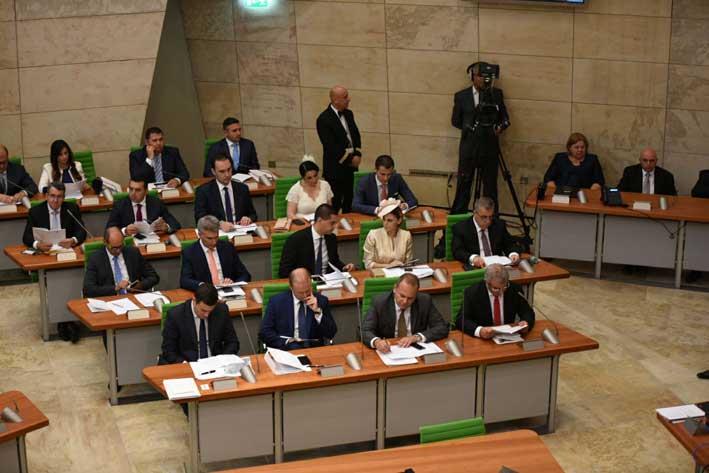
Something which you have mentioned in the past is the need for more resources – even human – within your office; is this need still there?
It has been addressed, and we have increased the number of research analysts who are involved in parliamentary committees and international organisations. The need is always there however, and we have some vacancies comingout soon which will be filled.
Another issue which you have also mentioned recently is related to the quality of construction in the parliamentary building itself – have these issues now been addressed?
It has but I am not happy with the works – water once again leaked into some places and I’m going to hold meetings on this as this work should have been done properly from the off.Those responsible for the works should see that remedial works are done on what was certified to be good but wasn’t actually as good as it should have been.
One last question – there is still a fair bit left of your term as Speaker but, in future, would you be open to taking on another term as Speaker?
I am always disposed for the best interest of the country and whoever is in government I am always ready to fulfil my duties, and I must thank the Government and Opposition who unanimously voted for me to serve as Speaker of the House in this legislature as well.